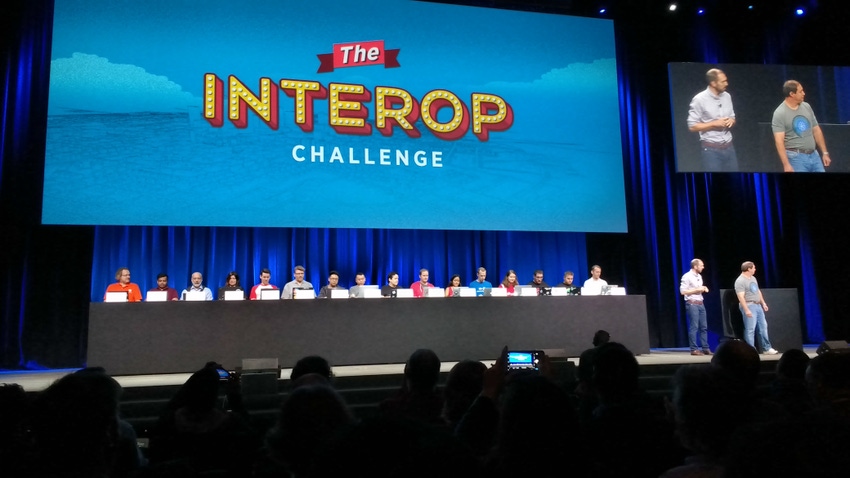Openstack may not be considered the number one platform in the world currently, but IBM's announcement at Openstack Summit this week has taken it one step forward.
October 26, 2016

Openstack may not be considered the number one platform in the world currently, but IBM’s announcement at Openstack Summit this week has taken it one step forward.
During the Austin edition of the conference in April, IBM’s Don Rippert set out a challenge to the community to demonstrate true interoperability across public, private and hybrid cloud by the end of October. Now we are in October, Angel Diaz, IBM’s VP Cloud Architecture & Technology, has confirmed the Interop Challenge has been successfully completed.
“This is a moment that the market will celebrate,” said Diaz. “Interoperability means barriers go down and the reality matches the speak. Openstack has promised a lot of things over the years and at its core it’s an opensource infrastructure-as-a-service. The first thing we promised was to become the world’s defacto opensource service. The next thing we promised was a platform which actually scales, now we’ve done that. Next thing we wanted to promise was interoperability and we’ll prove it.”
Although the challenge has been announced by IBM, it was not a solo journey. The challenge brought together 18 of the world’s largest tech companies, most of which were on stage at the Openstack Summit. During the course of the announcement a 16-person live demo including representatives from Red Hat, VMWare, HPE, Huawei and many more, took place to prove interoperability is now achievable on the Openstack platform.
“Clients can now have the assurance you can make your workloads interoperable across different Openstack’s and that is going to accelerate the adoption of Openstack across public, private and dedicated cloud environments,” said Diaz. “It’s the only IaaS platform which has demonstrated interoperability across all three topologies, and it happens to be opensource”
Although there are other factors which have limited the impact of Openstack on the technology world to date, interoperability is certainly one of the more significant. Vendor lock-in is a phrase which turns CIOs into crying babies, and for Diaz this milestone will lead to the acceleration of Openstack deployments throughout the world. It may sound simple, but it is a key step in the development of the platform; customers demand interoperability.
It may sound a bit strange to some however. Fierce competitors now working side-by-side to allow customers to shift workloads between different vendors. And let’s be frank, it is strange. This is not going to mean these organizations will stop competing, but it makes the proposition much more attractive to new customers. A rising tide increase the surface area for competitors to duke it out with each other.
“We want people to be able to choose the vendor,” said Diaz. “Choose the where they place their workloads which is smart to them. As adoption increases the variety of applications which are being built increases. Customers need choice which is why interoperability is so important.”
The journey for Openstack has been ongoing since 2016, and despite a couple of bumps along the road and the occasional wrong turn, faith in the platform is continuing. 5000 people attended the conference in Barcelona, and while there may be a lot of fluff and a lack of substance from the Openstack Foundation, IBM and co. have demonstrated there may be a light at the end of the tunnel with this announcement.
About the Author(s)
You May Also Like








.png?width=300&auto=webp&quality=80&disable=upscale)


_1.jpg?width=300&auto=webp&quality=80&disable=upscale)


.png?width=800&auto=webp&quality=80&disable=upscale)